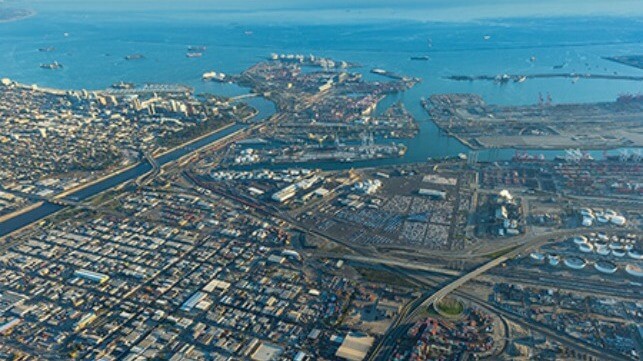MARAD Program Awards $241 Million in Grants for U.S. Port Projects

The U.S. Department of Transportation is rolling out a further $241 million in grants for a range of projects at America’s ports designed to further enhance port infrastructure and operations. Under existing Maritime Administration programs, the monies will be made available immediately to the ports while the Biden Administration also highlighted that the grant program will be doubled for the next five years.
News of the new grants comes as the Biden Administration is also promoting progress at the ports and across the national supply chain. During an update from the Supply Chain Task Force, President Joe Biden highlighted reports that retail inventories are now up three percent from last year. The President said that retailers reported their on-shelf availability was at 90 percent, down only one percent from pre-pandemic levels for this time of the year.
The U.S. infrastructure legislation recently enacted by the President includes $17 billion to speed up and modernize ports. That is in addition to MARAD’s annual grant program specifically designed for capital improvement projects at U.S. seaports, which the Department of Transportation is announcing today.
The largest individual grant goes to the Port of Long Beach which has been awarded $52.3 million to help fund the development of the “Pier B On-Dock Rail Support Facility.” The project, which the port says will enhance on-dock rail capacity, calls for the existing Pier B rail yard to be reconfigured, expanded, and enhanced adding a direct connection between the on-dock rail facilities and the Alameda Corridor railway. The total cost of the project is estimated at $870 million with the first tracks due in 2024 and completion in 2032.
“U.S. maritime ports play a critical role in our supply chains,” said Transportation Secretary Pete Buttigieg announcing the grants. “These investments in our nation’s ports will help support American jobs, efficient and resilient operations, and faster delivery of goods to the American people.”
Among the other projects that will be receiving grants is $14.6 million for the development of a fourth berth at Brunswick, Georgia’s terminal as well as $20 million to Portsmouth, Virginia to support the development of the port’s infrastructure for the offshore wind industry. The Port of Houston is receiving $18.3 million for the expansion of its Bayport Container Terminal while the Port of Oakland, California receives $5.2 million for power projects, and Tacoma, Washington receives $15.7 million for an off-dock container support facility. The program also includes grants to inland ports ranging from Tell City, Indiana to Bay St. Louis, Mississippi, Alpena, Michigan, and Delcambre, Louisiana. It’s the third year of the MARAD program that has already been awarded $492 million for 32 projects.
Earlier this year, the Department of Transportation also used remaining grant monies to help ports with immediate projects to address the congestion. They are promoting the success of the Georgia Ports Authority’s efforts at opening satellite container yards. As a result, the Port of Savannah reports that it expects to have fully cleared its backlog by January 2022. The Departments of Transportation and Labor also launched an effort to support and expand the U.S. trucking industry as another element of the supply chain.
The Biden Administration is also promising additional near-term actions targeting America’s ports to further address challenges in the supply chain. Within 60 days they plan to identify projects for U.S. Army Corps of Engineers construction at coastal ports and inland waterways. They are also working to prioritize key ports of entry for modernization and expansion and within 90 days plan to open competition for the first round of port infrastructure grants funded through the new infrastructure legislation.
